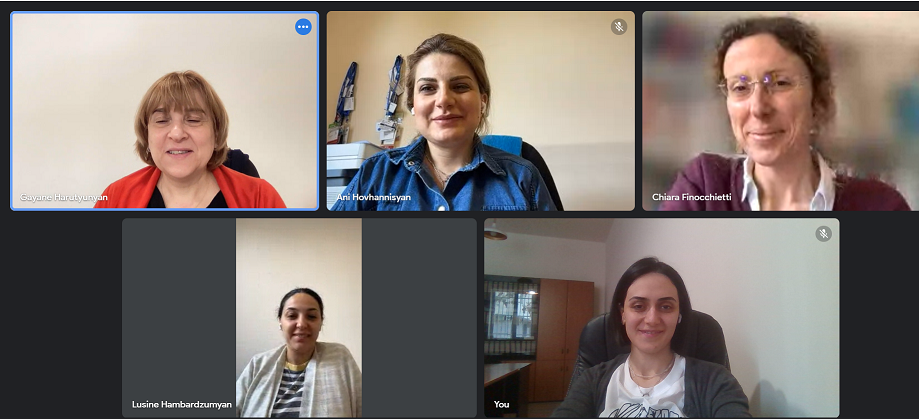On April 21, the kick-off meeting of the DETECT (Equipping education stakeholders with competences to detect and combat education fraud) grant project was held online. Besides the experts of ArmENIC one expert from the Italian CIMEA (Information Centre on Academic Mobility and Equivalence) is also involved in the project.
ArmENIC is one of 5 ENIC centers that won a grant from the Council of Europe. The purpose of the grants is to contribute to the implementation of the mission of ENIC centers by promoting cooperation and mobility in the field of education, as well as ensuring fair, transparent and non-discriminatory recognition of higher education qualifications.
In 2021 a team of experts from ArmENIC and a Council of Europe expert, with the financial support of the Council of Europe, conducted the study on “Developments and Detection of Education Fraud: Risks and Responses in the COVID-19 Age”. The study was initiated to reveal the need caused by the COVID-19 pandemic to reconsider the traditional tools and policies used for transparency, accountability and anti-corruption measures in education.
The results of the study revealed that education fraud and corruption practices not only hinder access to all levels of education, but also affect the quality of education, the credibility of research results and challenge the recognition of qualifications. Based on the outcomes of the study, the existing policies and procedures need to be reviewed and adapted taking into account the way digital technologies have impacted the proliferation of education fraud.
Thus, DETECT project aims to equip stakeholders in education with the competences necessary to prevent, detect, and combat education fraud through developing and conducting a training course based on the outcomes and recommendations of the study. The training will provide a comprehensive understanding of the problem of education fraud and techniques needed to prevent, detect and combat it. It will also contribute to raising awareness, prevention, early detection, legal and ethical considerations. Overall, the training will be a valuable asset for the stakeholders in education to protect their resources, reputation, and credibility. By providing participants with the knowledge, skills, and tools necessary to detect and prevent fraud, the training will reduce the impact of fraud and promote a culture of integrity and accountability.





